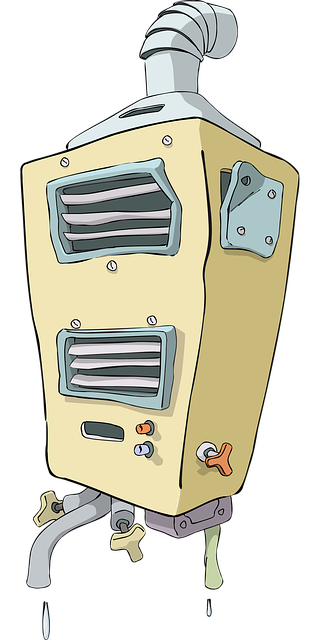Gas and electric water heaters typically last 8-15 years, but issues like sediment buildup, faulty thermostats, maintenance needs, or environmental factors can shorten this. Look for signs such as temperature fluctuations, overheating, unusual noises, water damage, lengthy heating times, hot spots, energy bill spikes, or frequent repairs, indicating the need for a new Signs You Need a New Water Heater. Regular maintenance and timely replacement ensure consistent hot water supply and avoid costly repairs.
In the quest for efficient and reliable hot water, choosing between gas and electric water heaters is paramount. This article guides you through the longevity debate, offering insights into the lifespan and maintenance requirements of each type. We’ll explore common issues plaguing gas heaters and delve into the durability and energy efficiency of their electric counterparts. Additionally, we’ll uncover hidden factors influencing water heater longevity, helping you identify when it’s time to say goodbye with our helpful ‘Signs You Need a New Water Heater’ section.
- Gas Water Heaters: Lifespan and Common Issues
- Electric Water Heaters: Durability and Efficiency
- Factors Affecting Longevity: A Comprehensive Look
Gas Water Heaters: Lifespan and Common Issues

Gas water heaters, while popular for their quick heating capabilities and accessibility, often have a shorter lifespan compared to electric models. On average, a gas water heater can last between 8 to 12 years before needing replacement. However, this can vary based on factors like quality of installation, frequency of use, and the efficiency of the unit.
Common issues with gas water heaters include sediment buildup in the tank, which can reduce heating efficiency and lead to leaks. Other potential problems include faulty thermostats, damaged or corroded parts, and gas line connections that may develop leaks over time. If you notice persistent temperature fluctuations, frequent overheating, unusual noises coming from the heater, or signs of water damage around the base, it could be a clear indication that your gas water heater is reaching the end of its lifespan and it’s time to consider Signs You Need a New Water Heater.
Electric Water Heaters: Durability and Efficiency

Electric water heaters are known for their durability and efficient performance, making them a popular choice among homeowners. These heaters typically last between 10 to 15 years with proper maintenance, which is on par with gas models. One of the key advantages of electric heaters is their consistent energy output; they don’t experience fluctuations like gas heaters, ensuring a steady hot water supply.
When considering the signs you need a new water heater, electric models offer several indicators. If your current heater takes a long time to heat the water or has developed hot spots, it might be time for an upgrade. Additionally, if energy bills have suddenly increased or you notice frequent repairs, these could be red flags that your electric water heater is reaching the end of its lifespan and requires replacement.
Factors Affecting Longevity: A Comprehensive Look

The longevity of a water heater isn’t solely determined by its type—gas or electric—but also by several other factors. One of the most significant indicators is regular maintenance. Even the best-maintained electric heaters may not last as long as a well-kept gas model due to differences in their internal components and operation. For instance, electric heaters often have fewer moving parts, reducing wear and tear over time. However, they tend to experience more frequent element replacements or failures, which can impact their lifespan.
Gas water heaters, while known for their durability, are susceptible to issues like sediment buildup, corrosion, and faulty pilot lights, all of which can shorten their life. Regular flushing and maintenance can mitigate these problems. Another factor is environmental conditions; harsh climates may accelerate the deterioration of both types, making signs of wear more apparent. Understanding when a water heater needs replacing is crucial; indicators such as inconsistent hot water supply, excessive energy bills, or strange noises could signal the end of its useful life, prompting users to consider switching to a new model.
When considering the longevity of water heaters, both gas and electric models have their pros and cons. Gas water heaters typically offer faster heating times but may face issues like corrosion and leaks over time. Electric heaters, on the other hand, are generally more durable with lower maintenance costs, but they can be slower at heating large volumes of water. Several factors, including usage frequency, temperature settings, and regular maintenance, impact their lifespan. Knowing the signs you need a new water heater—such as inconsistent hot water supply or rising energy bills—is crucial for making informed decisions. Ultimately, choosing between gas and electric depends on individual needs, energy efficiency preferences, and budget considerations.
